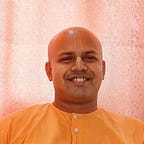How the word mythology became parallel to the Hindu faith?
Its origin
It is important for receptive minds to be presented with a cross-section of diverse and divergent views to let them decide for themselves what they wish to put stock in.
The difficulty with the word mythology is that it is opened to so many interpretations.
Anyhow the word mythology is made of two-word myth and logy. The word myth comes from a Greek word mythos which means a widely held but false belief, story or idea, and the word logy means to study.
Importantly, it is understood that Indologist did not hold India, Hindus, and the Vedas in high regard, which is evident from their work.
Thus it is obvious that they shun all the knowledge from the Vedic scripture.
Simultaneously they demonize the Vedic dharma and scripture and termed it as myth, and the word mythology became parallel to Hinduism.
Why it is often used in academics?
The word mythology became so familiar with the colonized mindset that it is now commonly used in NCRT and other school textbooks.
The Leftist lobby which has so far dominated the corridors of the MHRD is responsible for this.
Whereas it is evident that the word myth is rarely used with other religions because it requires courage to do it.
How Politicians use it?
The Indian National Congress in the year 2007 stated in the Supreme Court in India that there is no historical proof of the bridge being built by Ram, and Ram never existed, he is a mythical character, whereas it will never dare to do it with other religion.
This is also probably a good time to point out that in many instances the line between myth and religion is blurry, so is with science, but we put blind faith on our scientists, who have failed us many times.
Then why are we branding religious text as myth, simply because it is beyond our vision and imagination, so why be selective and use the word mythology only with Hinduism?
This is evident that political parties have ulterior motives and agenda.
Our idea is not to cherry-pick history, rather the larger vision is, to achieve through honest scholarship, is to bring to light those aspects of Bharat’s ancient history which instill pride in the average Hindu, regardless of his economics and educational background.
It will inspire him to draw valor from the past without hiding the collective mistakes committed.
Critically, in the process of instilling pride, the Indic Right should not unintentionally encourage a narrow worldview that refuses to acknowledge the achievements of other cultures and their influence on the Bharatiya way of life.
In essence, the goal must be to produce courageous, confident, and open-minded individuals who are deep-rooted in the culture of this land and become its proud ambassadors and an endorser equally.
An alternative perspective
Ironically the Indologist or historian who heavily criticized the Vedic dharma, its scriptures every time, calling it as myth, somehow become very serious with controversial issues such as dowry, widow remarriage, caste system and sati in Hinduism, as a gospel truth which in reality do not exist in the Vedic scripture or as usually wrongly interpreted and misunderstood.
Isn’t something fishy in this, definitely if we scrutinize we will see that the so-called Indologist, historian, and activist have a skeleton in their cupboard?
It is an atheistic agenda to replace God with modern science, but it is troublesome, thus the easy way to attain it is first to demonize the Vedic personality and texts, create doubt in the mind of common people, and then term the entire religion as mythology.
This happens without an honest reading of the Vedic scripture under the guidance of guru sisya parampara, and because of holding too much prejudice for the Vedic dharma and deep-rooted superiority complex and hatred.
Questions can be answered to seeker but not to activist and people with hidden agendas.
What is the way forward?
Even if you are not a Vedic scholar, but an honest student of Vedic Dharma in the bonafide tradition, you will definitely know that Hinduism is a monotheistic religion (eka brahma dvitiya nasti) and not a pantheistic religion.
But not to our surprise we know that from the very beginning, from the school textbooks to the competitive exams and in the media, Hindus are referred to as people with many Gods and are often mocked and ridiculed.
Hinduism is a fascinating religion with a rich source of knowledge, but when small brains find it difficult to understand, they term everything as a myth.
We must be vocal about the benefits of Hindu’s working cooperatively with people of other religions and valuing their contributions, while at the same time maintaining our faith in Vedic text and our fidelity to our own tradition.
We must address the challenges of interacting with people of different faiths, and of being willing to open oneself to the critical eye of those outside one’s own tradition.
